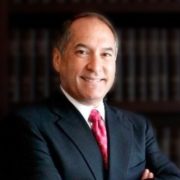DOS should consider consuls’ requests for additional information or documentation in a similar vein, and if the visa is eventually issued, then there should be no problem or adverse consequences. Asking for more information should not be considered a denial, setting up the person for a potential charge of fraud or misrepresentation.
Sometimes, when a person applies for a visa (such as a visitor’s visa), the consul may ask for additional information or documents, such as a birth certificate, bank statement, photos, or the like. When that happens, the person’s application (or case) is temporarily suspended (or put on hold), for “administrative processing,” under section 221 (g) of the Immigration and Nationality Act, while the applicant gathers and submits the documents or information.
The Department of State (DOS) considers a consul’s decision to temporarily suspend the visa application to be the equivalent of a refusal or denial even though the visa is eventually issued!
A huge problem may surface when that person later applies to renew the visa or applies for a different type of visa. This is because there is a question on the application (Form DS – 160) asking if he or she ever had a visa “refused”. Under DOS reasoning, when the consul asked for additional information or documents, that was already considered to be a visa refusal or denial. Therefore, in our example, the applicant would have to answer “yes” to the question about previous visa refusals, even though that previous visa was eventually issued after he provided the requested information or documents to the consul.
In addition, Customs and Border Protection (CBP) could also consider the failure to disclose such a visa “refusal” as constituting a misrepresentation. Therefore, if the person is asked by CBP if he or she was ever denied a visa or entry to the US, or had a US visa canceled, the person is supposed to answer “Yes”.
I really think that DOS needs to change its policy or rules about visa refusals, as it could be a trap for the innocent and unwary. Who would think that merely asking for additional documents or information means that the case was “denied”?
By way of comparison, the USCIS sometimes serves a “Request for Evidence” (RFE), where they also asked for additional information, documentation, or explanation. A person is typically given about 84 days to respond. Once the person responds, and the response is satisfactory, the case can be approved. No one considers an RFE to be the equivalent of a denial. It is simply a request for additional information or documentation. It is not a refusal or denial.
DOS should consider consuls’ requests for additional information or documentation in a similar vein, and if the visa is eventually issued, then there should be no problem or adverse consequences. Asking for more information should not be considered a denial, setting up the person for a potential charge of fraud or misrepresentation.
Moreover, it burdens CBP with additional, time consuming work. If a person must answer “yes” to a question about visa “denial” in connection with a Consul’s request for additional information, CBP will then have to manually review the case for the person’s eligibility to travel to the US. All that wasted effort and manpower simply because the consul may have asked for a photograph, an updated police clearance or birth certificate in connection with the visa application. And if the person didn’t realize the request constituted a denial, he or she would not answer “yes” and CBP could also charge the applicant with fraud.
But the bottom line is applying for immigration benefits can sometimes be like walking through a minefield. As hard as you may try to comply with the law, you could find yourself being accused of misrepresentation or fraud, basically for a crime you did not commit.
* * *
Michael J. Gurfinkel is licensed, and an active member of the State Bar of California and New York. All immigration services are provided by, or under the supervision of, an active member of the State Bar of California. Each case is different. The information contained herein including testimonials, “Success Stories,” endorsements and re-enactments) is of a general nature, and is not intended to apply to any particular case, and does not constitute a prediction, warranty, guarantee or legal advice regarding the outcome of your legal matter. No attorney-client relationship is, or shall be, established with any reader.
WEBSITE: www.gurfinkel.com
Call Toll free to schedule a consultation for anywhere in the US:
(866)—GURFINKEL
Four offices to serve you: LOS ANGELES · SAN FRANCISCO · NEW YORK · PHILIPPINES






